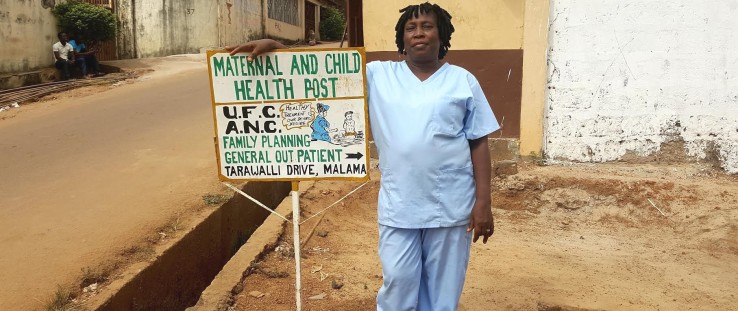 Elizabeth Coker, better known as Nurse Betty, founder of the maternal and child health post in the Malama suburb of Freetown, Sierra Leone
Mariama Keita, USAID
Elizabeth Coker, better known as Nurse Betty, founder of the maternal and child health post in the Malama suburb of Freetown, Sierra Leone
Mariama Keita, USAID
 Elizabeth Coker, better known as Nurse Betty, founder of the maternal and child health post in the Malama suburb of Freetown, Sierra Leone
Mariama Keita, USAID
Elizabeth Coker, better known as Nurse Betty, founder of the maternal and child health post in the Malama suburb of Freetown, Sierra Leone
Mariama Keita, USAID
Speeches Shim
As I walked into an atmosphere of lactating mothers and crying children waiting to be seen in the maternal and child health post located in the Malama suburb of Sierra Leone, I was in search of “Nurse Betty,” a well-known advocate and champion for women’s health.
She is a midwife with more than 23 years of experience in the health sector and is recognized for running the only health facility that remained open during the peak of the Ebola crisis. Despite having minimal resources, Nurse Betty remained committed to providing around-the-clock access to free health care for women and children in a country that has the highest infant and maternal mortality rates in the world—many times without electricity or running water.
With a cell phone, camera and notebook in hand, I politely interrupted a woman sitting near the main corridor in blue scrubs tending to the needs of a patient. When our eyes connected, I immediately knew it was Nurse Betty as she welcomed me with open arms and later informed me that her legal name was Elizabeth Coker.
As a leader passionate about her work in health care, Nurse Betty began to explain her previous employment experiences at Lumley Government Hospital in the west end of Freetown. She revealed that she was inspired to enhance her professional development by taking various courses after consistently receiving praise from her co-workers about her compassion. In one of her classes, she shared, “I had a dream that I would one day become the founder of my own health facility providing maternal health services to the same communities I served in the only government referral hospital in Freetown.”
It took years of triumphs and failures, but with the support of her community and a consortium of partners, Nurse Betty’s dream came true in 1996 when the doors of her first health facility opened in Lumley. Over the course of 13 years, the clinic moved twice, finally landing at its current destination in Malama in September 2009. With pride she says, “My greatest achievement in 2016 is not only [being] the founder of this health facility, but [increasing] the level of confidence and trust of women giving birth here.”
Last year also marked the year that the John Hopkins University Center for Communications Programs’ Health Communication Capacity Collaborative (HC3) actively planned and participated in the “makeover” of this health facility. In Malama, it covered painting, extension of the waiting hall, roofing repairs, purchase of furniture and connection to a water supply. The process inspired the community to mobilize resources to rehabilitate the entire structure.
The Government of Sierra Leone has also made great strides to combat poor-quality care during deliveries as well as high levels of infant and maternal mortality. In 2010, the national Free Health Care Initiative was launched, providing free health care at public facilities to pregnant and breastfeeding woman, and children under age 5.
As Nurse Betty was eager to return to assisting patients, we began a tour of the facility, observing all the levels of remodeling to the infrastructure, and greeting patients and health care workers at the same time as I moved from room to room. According to HC3, the facility has improved greatly with more space, having separate rooms for antenatal care and delivery.
I proceeded with caution: after all, this was an environment where I could see women giving birth at any time. What I discovered instead was a young couple, James and Salematu Bindu, who had just welcomed a baby girl, Kadiatu. The new dad with his new daughter by his side expressed complete satisfaction with the quality of services they received.
In the midst of their cuddling moment, Abdul Karim Turay, a community leader and pastor involved in various health, education, water and sanitation projects, decided to pay a visit to the heath facility. This led to a candid discussion on his role and approach in influencing behavior change.
“Our community of leaders consistently distributed warnings and key messages on imposing fines to any families of women caught giving birth at home,” Turay told me. “I never issued a fine,” he added, but believes his efforts contributed to the increase of deliveries in this post from October 2016 to date. Other techniques to encourage people to come to the health post included community dialogues and radio listener discussion groups.
Key indicators also showcase progress over these past five months as the facility now conducts on average 25 deliveries per month, up from 15. They are seeing 30 patients per day, which used to be no more than 20.
As my time with Nurse Betty came to end, I ran into a young man at the front entrance who happened to be the son of Nurse Betty, Joseph Sidique Kamara. He helped build the structure—he holds a national diploma in building and civil engineering—and also volunteers there.
Like mother, like son. It is no surprise that both have an innate passion to improve the lives of women and children. As Nurse Betty stood next to the sign of her own health facility, she waved goodbye and in Krio, Sierra Leonean Patois, she said, “Thank you for com, we go see next time!”
The closing of HC3 Ebola recovery efforts in Sierra Leone earlier this year was marked by a ceremony held in late March. “We have been fortunate to receive significant support from USAID to implement health promotion interventions,” said Dr. Samuel Kargbo, director of policy, planning and information for the Ministry of Health and Sanitation. “Sierra Leone now has a health promotion strategy that contributes directly to the priorities of the president’s Ebola recovery plan for the health sector, and will raise the bar for higher-quality health promotion across the country.”
Key interventions of the program—health promotion efforts, community dialogues and radio listening groups—took place in five districts: Bombali, Port Loko, Tonkolili, Western Area Urban and Western Area Rural, and included 93 catchment communities. Community members planned and participated in making over 31 health facilities in Sierra Leone as part of the USAID-backed initiative.

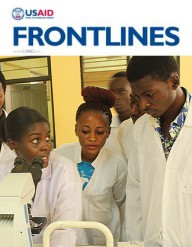

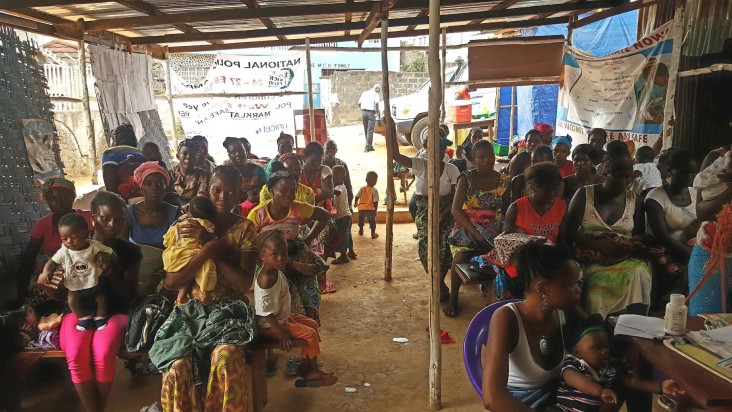
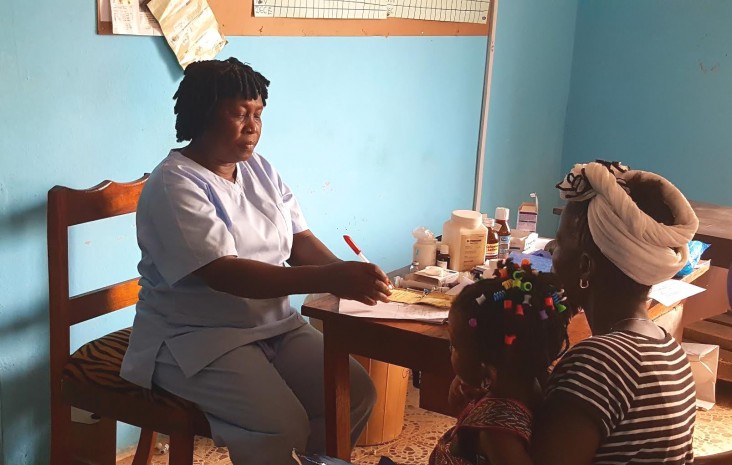
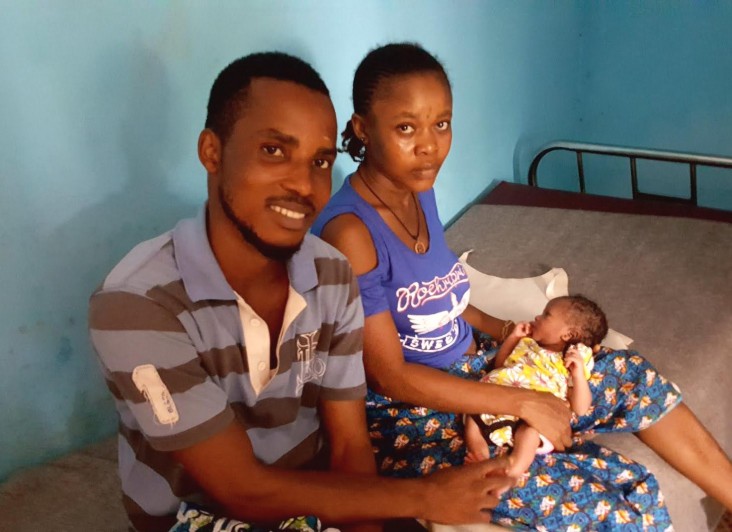
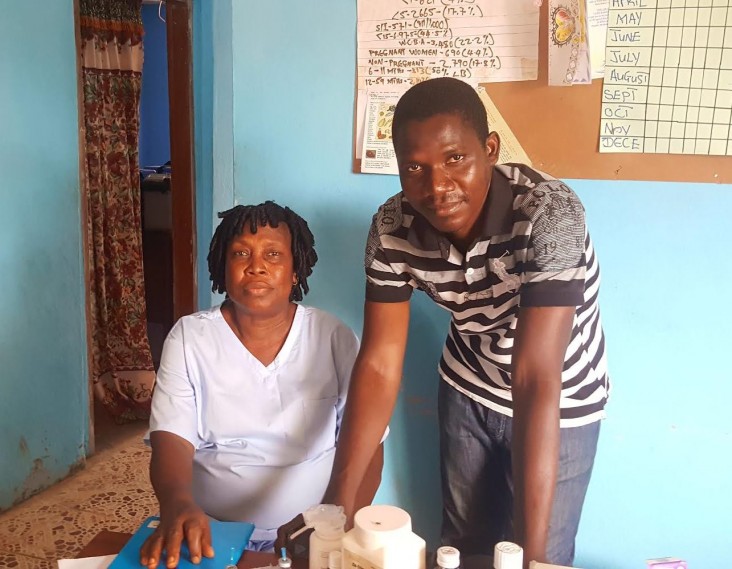
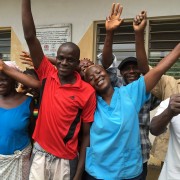
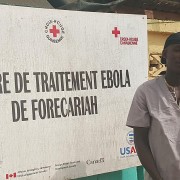
Comment
Make a general inquiry or suggest an improvement.